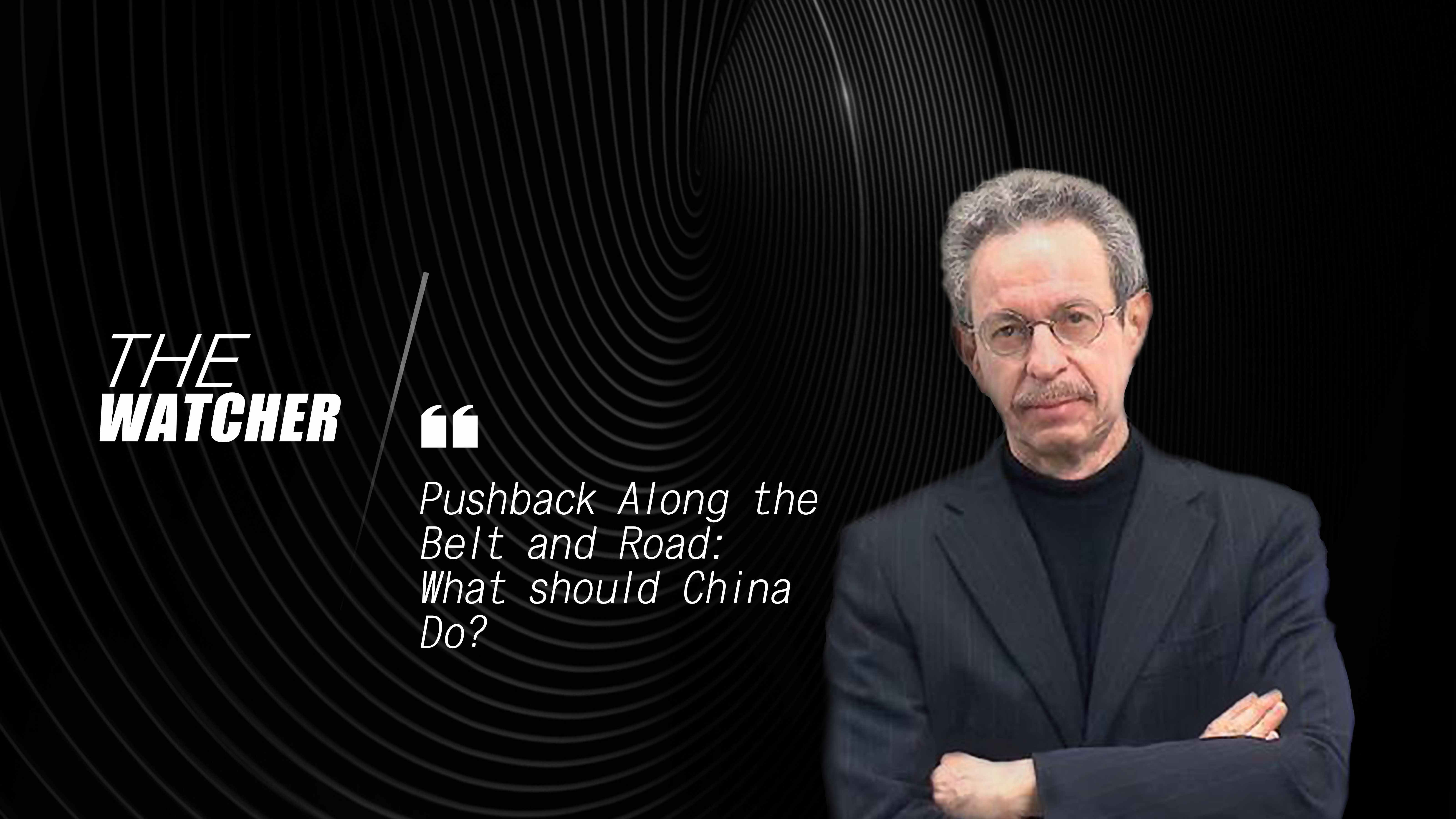
Opinions
17:49, 23-Sep-2018
The Watcher: Pushback Along the Belt and Road: What should China Do?
Updated
17:44, 26-Sep-2018
By Robert Lawrence Kuhn
03:39

I'm Robert Lawrence Kuhn and here's what I'm watching – the apparent pushback against China, all along the Belt and Road, focusing on excessive debt becoming a burden for host countries.
Here's the blunt charge from some Western media: China has a deliberate strategy to create quasi-vassal states for perpetual economic exploitation and potential military expansion.
What does China say? What should China do? The bottom line is that all these problems are natural "growing pains" of a vast and visionary initiative. It is to China's credit, not to its blame, that the Belt and Road projects are financed as commercial loans – that makes the initiative more sustainable.
Sure, better financial forecasting and structuring should be done upfront, to match more accurately and more conservatively future project-related revenues to future loan-service payments.
For infrastructure projects, revenues are often indirect, generated over many years as regional economic growth enables new businesses to hire employees and pay taxes.
I would advise career-conscious Chinese officials who, with all good intent, seek to show results quickly – because Belt and Road is Chinese President Xi Jinping's signature international initiative – to recognize that, for infrastructure, economic returns are measured in decades, not in years, and unrealistic expectations can undermine real value.
These are mid-course corrections – and China is especially good at doing just that. That's what made China's four decades of reform and opening up so astonishingly successful: Start with experimental projects, see what works and what doesn't, make changes and roll it out further. We see, of late, that President Xi Jinping is addressing the issues of Belt and Road debt openly, so we know China is making refinements.
There are other issues, including charges of deindustrialization (because Chinese companies produce good products at low prices), corruption (kickbacks), project delays, and cultural insensitivities. China is addressing each of these.
Here are three prescriptions: One, forecast revenues conservatively and match them to loan schedules, estimating indirect incremental revenues developing in the region as well as specific revenues generated by the project. Two, facilitate an industrialization plan for the host country, leveraging China's experience. Three, curb the enthusiasm of Chinese officials in promising results before their natural time.
Recognize that, as President Xi said, Belt and Road is the "Project of the Century." China certainly benefits from Belt and Road projects; nonetheless, building infrastructure in the developing world is essential to rebalance severe global imbalances. Call it by whatever name you like. Everyone should root for its success.
I'm keeping watch. I'm Robert Lawrence Kuhn.
(If you want to contribute and have specific expertise, please contact us at opinions@cgtn.com.)

SITEMAP
Copyright © 2018 CGTN. Beijing ICP prepared NO.16065310-3
Copyright © 2018 CGTN. Beijing ICP prepared NO.16065310-3